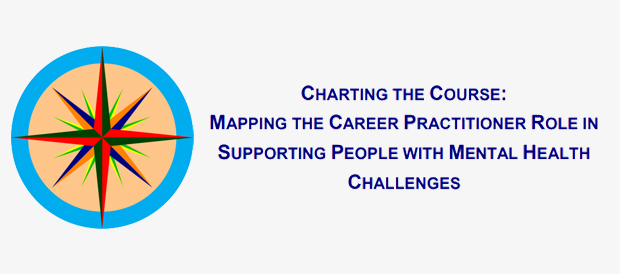
Employment is broadly recognized as an important cornerstone of social inclusion providing identity, purpose, meaning, social connections and the resources needed to participate in one’s community. People living with mental health issues face the highest unemployment rate of any disability group and for many work remains an illusive goal. Being left out of work leads to material deprivation, poverty, worsens physical and mental health, increases family burden and creates a sense of personal shame. Although people want to work, they report that stigma, discrimination and limiting public policies play a critical role in their exclusion from the workforce beyond the limitations of their illness.
The Nova Scotia government is also recognizing the importance of improving employment access to marginalized groups to meet the province’s growing workforce needs. The Nova Scotia Career Development Association has identified a gap between the needs of clients presenting with mental health issues and the comfort and knowledge level of practitioners who are tasked with moving clients into the workforce. Clients are increasingly disclosing their experience with mental illness as a factor in their employment and counsellors report feeling handcuffed by a lack of knowledge and resources to help move people forward effectively. There is currently no systematic training or education provided to career practitioners to understand and manage these issues within their practice. Career practitioners can play a critical gate-keeping role in helping people gain or reclaim a foothold in the world of work and in accessing education and training programs. When properly resourced, they have the potential to become powerful agents of change on this issue.
Supported by a CERIC research grant the Nova Scotia Career Development Association (NSCDA) in collaboration with Neasa Martin & Associates, will develop a province-wide engagement, education and transformation strategy targeting career counsellors, educators and policy planners to share best practices, improve career counselling access and service delivery. Employment success requires addressing the stigma people experience in accessing the services they need to enter, retain their foothold in the workforce, or return to competitive employment after a leave of absence.
A Project Advisory Committee will be recruited through the NSCDA, and will include consumer leaders and project educators who will share their “experiential expertise” and insights. Province-wide cross-sectoral consultations will be undertaken over the coming year through surveys, stakeholder interviews, education sessions, and roundtable discussions. By focusing on stigma and discrimination, sharing evidence-based knowledge and tools on social inclusion, we will collaborate with all stakeholders to identify ways for improving service access. This specialized employment issue is not unique to Nova Scotia and the transformational learning from this project will be relevant for developing a national program.
Stay tuned as a project website will be developed to share information and resources http://www.nscda.ca/. To get involved in this project or contribute ideas please send us an e-mail at neasamartin@primus.ca or chartingthecourse@nscda.ca.

Charting the Course: Mapping the Career Practitioner Role in Supporting People with Mental Health Challenge
Final Report
